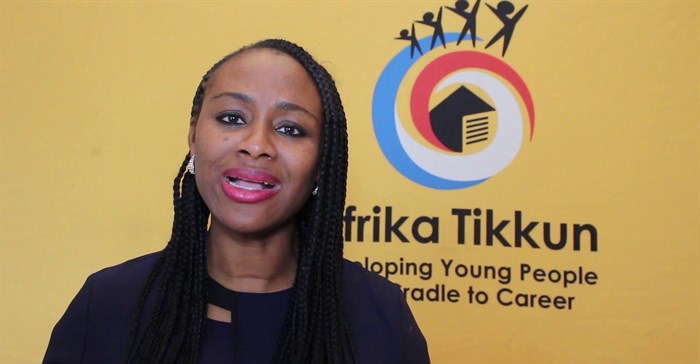#AfricaMonth: Ubuntu for the future of Africa

For many South Africans the word ubuntu is steeped in history, believed to have originated around the mid-nineteenth century by the Zulu community. Since the country's transition to democracy in 1994, the term has become more widely recognised.
In truth it is used around Africa with the same philosophical ideal - to unite pan-African cultures. For example, in Zimbabwe the term is "unhu" and in Malawi "uMunthu". Even in global popular culture the term has been used in politics, sound and stage.
The direct translation of the term is "humanity", but there is more to it than that. It is essentially the essence of humanity, encapsulating numerous sets of values that are integrated with one another; those of compassion, kindness, sharing and community. It is the connectedness that exists or should exist between people. It is not merely an idea but an action.
Ubuntu is the spirit of Africa. The question is whether South Africa is practising ubuntu, particularly when it comes to the youth of the country.
The concept of ubuntu ties in nicely with Africa Day - celebrated annually on May 25th with the intention of acknowledging the ongoing transformation of the African continent and its people, the largest population of which is youth aged 0-24 years.
In 2018 the Bill & Melinda Gates Foundation released its annual Goalkeepers report stating that by 2050 the continent will have the largest number of young people. According to the report, Africa is the only continent in the world where the youth population is still growing. As our young people are set to represent a larger and immensely important share of the continent’s population, there is huge potential for growth, but it is essential for skills, finance and human capital investment by business.
Nurturing and empowering youth
According to StatsSA, there are over 120,000 registered non-profit organisations (NPOs) in South Africa with many focused on nurturing and empowering youth. These are NPOs that embody this spirit of Africa and work to make a real impact for the betterment of African society and its future. Similarly, many large organisations and institutions have corporate social responsibility and investment programmes that further support these objectives.
Afrika Tikkun created the Cradle to Career 360º model within which we have provided education, skills, empowerment, nutrition, health and safety services to children from early childhood development to school leaving age for the past 25 years. Our benefactors such as ABSA, Total SA, KFC, Belron, Synthesis Technologies and many others are great examples of South African businesses rolling up their sleeves to realise positive change.
Ubuntu needs to be a movement committed to by all who live, work and play here; by all who benefit from the country’s economy; by all who want to participate in the country’s future.
Like many other internationally earmarked celebration days, each year the official theme of Africa Day changes - this in order to throw a spotlight on the different aspects of the issue at hand. Yet underlying each theme year on year are the same core aspirations.
The African Union's very first aspiration in their blueprint for African transformation, Agenda 2063, is “a prosperous Africa, based on inclusive growth and sustainable development”. A nod to the fact that Sub-Saharan Africa’s economic growth in the coming decades depends greatly on investment.
Not provided with the opportunities needed to improve their lives, our youth will get stuck in the cycle of poverty with no way out.
"I am because we are"... so are you.
Think local, think African, act in support of Africa’s future.
About Onyi Nwaneri
Onyi Nwaneri, director of partnerships and marketing at Afrika TikkunRelated
#HumanRightsMonth: Corporates vital role in driving social change 18 Mar 2025 16 Days of “Nothing” in a year of endless gender based violence 19 Dec 2024 Jockey supports men’s health with Cansa Care Home donation 29 Nov 2024 Revolutionise CSR supporting NGOs with skills, not just money 20 Sep 2024 AutoTrader ignites a spark to empower the youth of South Africa 16 Sep 2024 Oxford University Press Southern Africa gives back on Mandela Day 22 Jul 2024























